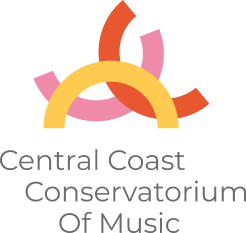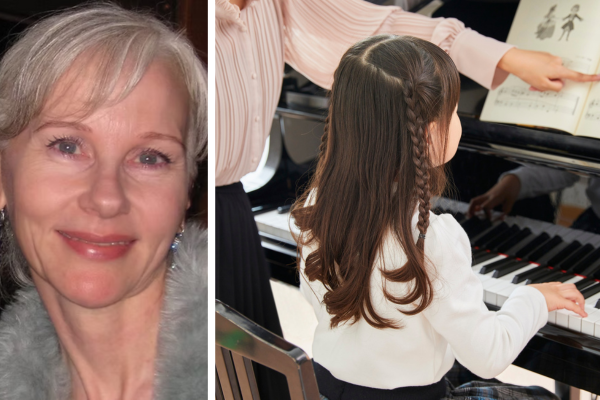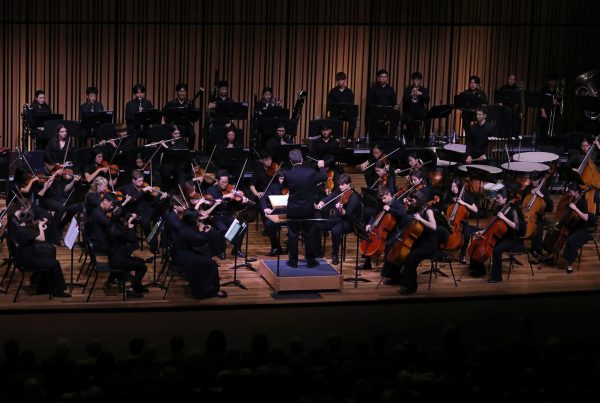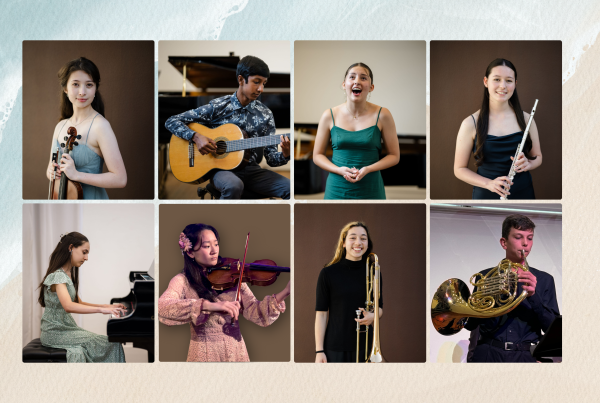We are pleased to welcome registered music therapist and special needs piano teacher Dr Micaela Nathan to the Central Coast Conservatorium team.
Experienced concert musician Micaela will be bringing her experience as a registered music therapist and music educator to students at Central Coast Con, teaching piano (specialising in giving lessons to children with special needs) and offering Music Therapy classes.
Micaela will provide tailored piano lessons for children who are neurodivergent, have cognitive differences, and physical disabilities – including autism, dyslexia, ADHD, OCD, Downs syndrome, vision impairment/total blindness, cerebral palsy and depression.
“Learning is guided by principles and techniques of music therapy and adapted to each student’s specific needs. Piano is the preferred instrument for these students. Some gain benefit on the other instruments offered, however piano has been shown to be a superior medium for special needs students to improve psychophysiological co-ordination and emotion regulation,” she said.
Parents will be required to attend each lesson. “It is very beneficial for parents to see the student/teacher interaction, understand what is taught, and how they can support their child in home practice.”
As a registered Music Therapist, Micaela also provides music learning programs for children who are neurodivergent, have cognitive differences or physical disabilities. She has undertaken specialist post graduate training and has 25 years’ experience teaching these unique children.
Micaela is available for piano lessons on Tuesdays, 3pm-6pm and Music Therapy sessions on Mondays, 12noon-2pm.
To enquire about enrolling with Micaela, call 4324 7477, email admin@cccmusic.nsw.edu or fill in our Enquiry Form.
About Micaela
Dr Micaela Nathan is a professional orchestral and concert performer, NDIS-registered Music Therapist, examiner for the Australian Music Examinations Board (AMEB), composer, and artistic director. After attending the Sydney Conservatorium high school, she gained her BMus (high distinction), MA (music therapy) and PhD at Sydney University, with adjunctive post-graduate degrees through Melbourne University and the Sydney University of Technology. Her doctorate research addressed the sociological foundations of Performance Dysfunction in career musicians and music students set in the cultural environment of higher music education. This has contributed to her expertise in the areas of performance anxiety and music therapy.
Over her 40-year career as a concert musician, Micaela has worked regularly with the major Australian symphony, opera, and ballet orchestras in NSW, QLD, and Victoria, and held principal positions with many music theatre productions in Australia, Singapore, Hong Kong, and Korea.
Micaela has been a music educator for 40 years at primary, secondary, and tertiary levels, including lecturer in woodwinds and piano at the Northern Rivers Conservatorium, Penrith Conservatorium, the University of NSW, and Sydney University of Technology. She is regularly sought for specialist instruction for HSC, undergraduate, and post-graduate music students.
She has composed five albums of structured music therapy sessions, presented at International Music Therapist Association conferences, and published for the International Journal of Music and Imagery. As an adjunct to performing and teaching, Micaela spent many years facilitating workshops combining music psychology and music therapy for community events, cancer patients, and post-graduate students of music therapy.
Key Features of Special Needs Piano Lessons
- Individualised Approach: Lessons are designed to accommodate each student’s unique needs and abilities, whether they have autism, ADHD, dyslexia, or other conditions.
- Structure and routine: A consistent structure and routine can be particularly beneficial for students with autism or other learning differences.
- Music Therapy Principles: Some programs incorporate music therapy techniques to improve psychophysiological coordination and emotional regulation.
- Parent Involvement: Many programs encourage parent involvement, with some requiring parents to attend lessons to better understand the learning process and how to support their child at home.
- Focus on Strengths: The goal is to build confidence, motor skills, and social coordination in a safe and supportive environment.
- Visual Aids and Clear Communication: Using visual aids and clear, concise instructions can be helpful for students who benefit from these methods.
- Reinforcement and Positive Encouragement: Teachers often use positive reinforcement and encouragement to motivate students and celebrate their progress.
- Flexible Toolkit of Teaching Methods: Teachers use a variety of methods, including singing, physical demonstrations, and using colors to mark scores, to cater to different learning styles.
- Story-Based Approach: Some programs use story-based approaches to make learning more engaging and accessible.
- Focus on Small Steps: Breaking down complex tasks into smaller, manageable steps can help students succeed.





